What was once a wooded area with an old stone farmhouse in northwest Springfield will soon be home to Eden Village III, a tiny-home community for chronically and disabled homeless people.
This Eden Village, located 2419 W. High St., will look a little different than its predecessors, Eden Village I at 2801 E. Division St., and Eden Village II at 3155 W. Brower St.
To avoid rezoning battles with neighbors and the city, Eden Village founders Dr. David and Linda Brown opted to build the first two Eden Villages on sites that were zoned for mobile home parks. This all allowed for the 400-square-foot manufactured homes to be put on the existing trailer pads and spaced apart.
The property on High Street is zoned “residential low density,” which allows for duplexes, explained Nate Schlueter, Gathering Tree’s chief visionary officer.
So rather than the individual tiny homes spaced several feet apart, Eden Village III will have 12 duplexes with 24 units. Those individual units will essentially be the same as the tiny homes at Eden Village I and II, but two units will be connected at the rear and positioned in an “L” shape.
“They’ll feel a lot like the Eden Village tiny homes,” Schlueter said. “People won’t share front porches with other people. They will have their own space that they enter into. They’re not a side-by-side unit.
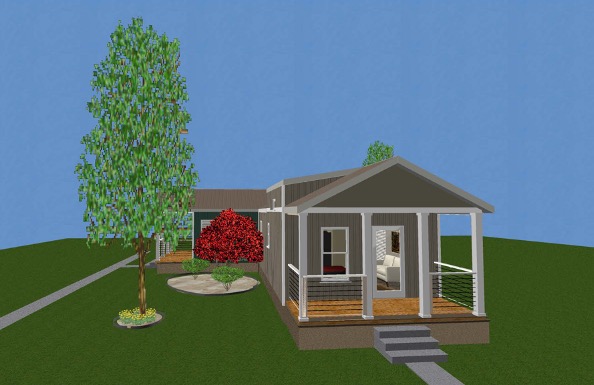
“They’re modular duplexes. They’re certified by the state,” he continued. “They come in on a semi and drop down on a crane to a permanent crawlspace foundation.”
As with the first two Eden Villages, the homes at Eden Village III will be for single individuals.
The idea is to take care of that specific population before attempting to develop a housing project for couples or families, Schlueter said.
A groundbreaking ceremony for Eden Village III will take place at 11 a.m. Nov. 30, the final day of Homelessness Awareness Month.
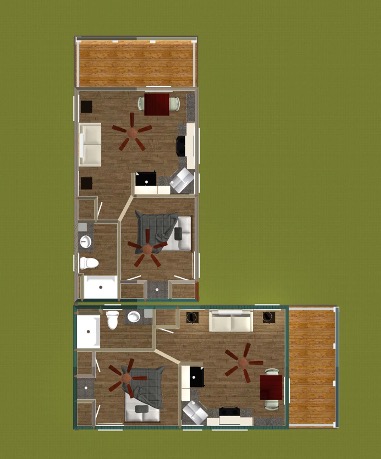
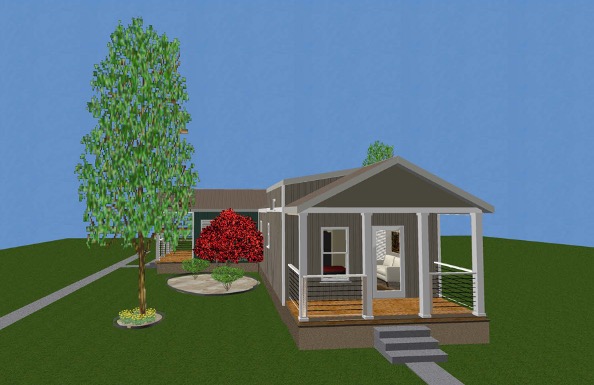
Cost increases, donors continue to step up
The cost to complete each unit for Eden Village III is about $60,000 ($120,000 for a duplex).
The cost of the homes has gone up since the first homes purchased for the first Eden Village back in 2018. Those first homes cost about $30,000. The homes for the second Even Village cost about $38,000.
Schluter said the increase is due to rising construction and transportation costs. And unlike the first two properties, the Eden Village III property is a “full infrastructure project,” meaning workers will have to install sewer, water and electric, Schlueter said.
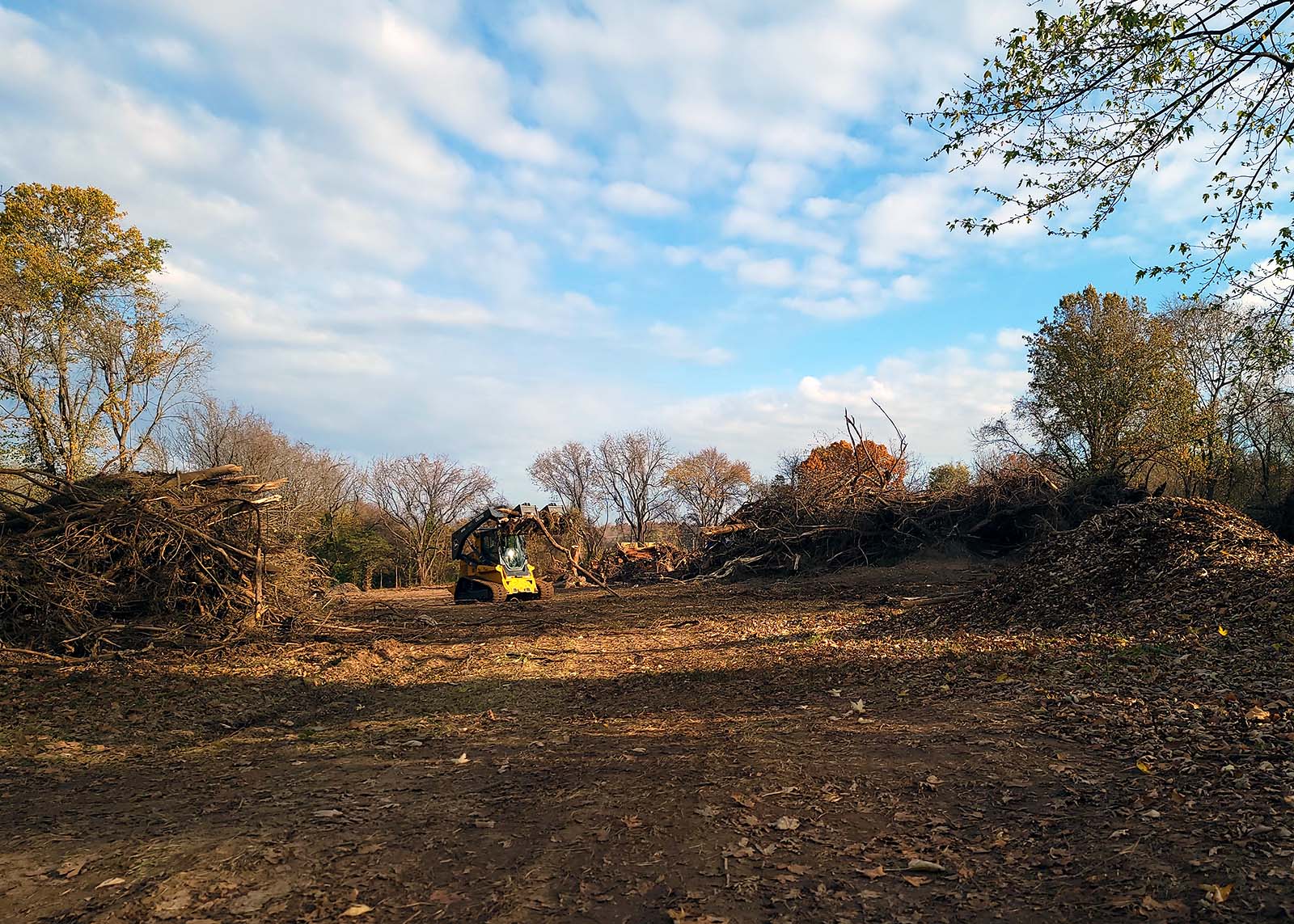
The Eden Village tiny home communities are projects of the Gathering Tree, a nonprofit organization that started out as an evening drop-in center for Springfield’s unsheltered community. The drop-in center gave folks a place to be in the evening, where they could use computers, shower and get some food before heading to wherever they were sleeping.
First major donation to project was in 2016
Linda Brown has recalled many times over the years how upsetting it was for her to watch her homeless friends leave every evening, knowing they would be sleeping outside while Brown was going home to a warm bed. That’s the reason she wanted to create an affordable housing program that would also provide services and be a community for the chronically homeless.

The first major donation to the project was $30,000 from Judy Huntsman, a now-retired realtor, in November of 2016. That money was used to purchase a tiny home, which sat on the property on Division Street for some time to serve as a model home potential donors could tour.
By August 2018, there were 31 homes and a community center on that property, and the first resident moved in.
The Browns closed the Gathering Tree drop-in center in 2018 to redirect resources and volunteer time to the Eden Village housing project.
The second Eden Village was created in 2020 with 24 homes.
There are currently about 250 people on the waiting list for a home.
Tiny home communities are ‘God’s Project’
The Browns often describe the Eden Village communities as “God’s Project.”
“Our motivation was the Gathering Tree, being able to be with our friends, learning about our friends, their stories and getting to know them,” Linda Brown said. “What really started the whole thing (Eden Village) was feeling like we needed to do something besides a bandaid.”
Private donors and organizations that sponsor the homes are encouraged to get to know the person who lives in it, to stop by and have coffee from time to time and make that person a part of their family. Sponsors also get to name the home and help decorate, if they want.
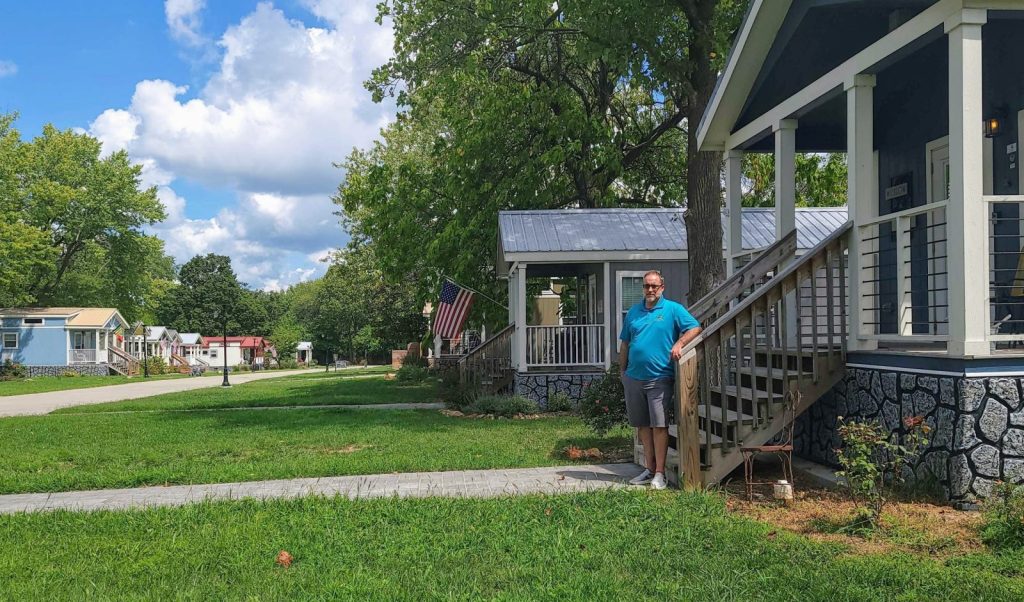
All of the 24 homes planned for the third Eden Village have been sponsored by donors. But those sponsorships were done back when it cost about $35,000 to build a home. Since construction costs have gone up in recent years, they still need about $800,000 to complete the community.
Plans for a fourth Eden Village are well underway, she said.
“We couldn’t be where we are today without donors and the support, from volunteers on up to financial donors,” Linda Brown said. “The community at large sees that it is happening and it does work.”
The homes for Eden Village I were manufactured in Texas, but Scluteter and the Browns later found a company close to home in Neosho called Village Home Builders to construct the Eden Village II and now Eden Village III homes.
Rent has not gone up since program started
Residents at all the Eden Village properties, including the planned third Eden Village, pay $325 a month in rent. That includes utilities and no deposit is required.
To qualify for a home, individuals must have been homeless in Springfield for at least a year and have some kind of income to pay rent.
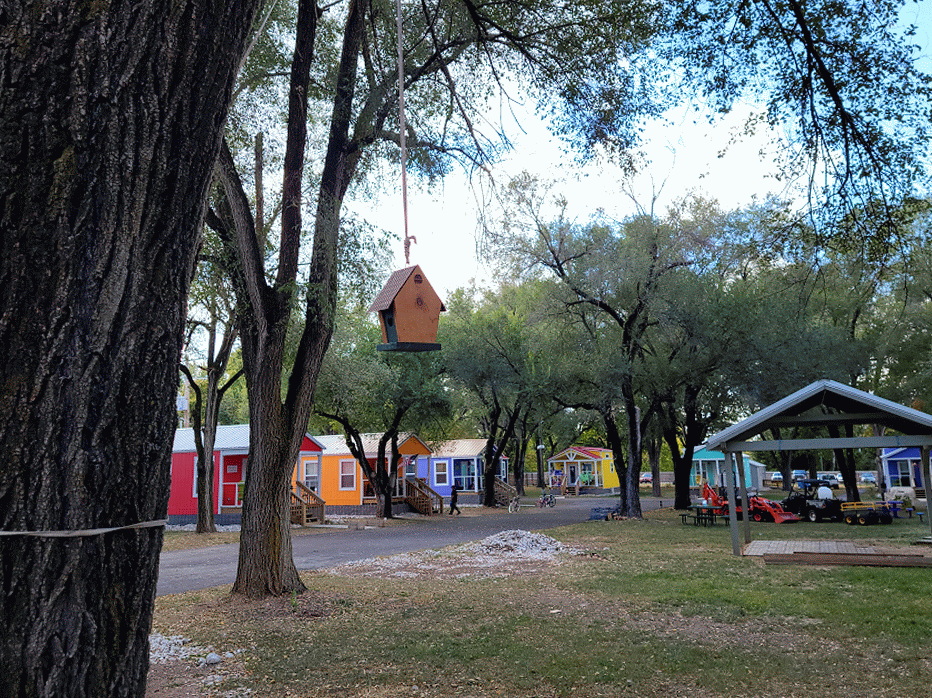
As with the first two Eden Villages, the third will have a community center building where residents can have dinners, meetings, movie nights or meet with case managers. There will be a park in the center of Eden Village III, according to the preliminary plans.
And like the other properties, Eden Village III will be a gated community with a fence and security cameras. Residents can enter the property using biometric technology (fingerprints). Guests must check in and out at the community center.
Schlueter said he hopes to be moving residents into the third Eden Village by the end of 2023, but it could likely be around the start of 2024.
“It really depends on how this winter plays out, because it’s a full infrastructure project,” he said. “You gotta put everything in. It’s not a mobile home park. It really depends on how the winter plays out with being able to lay water, sewer and electricity.”
Learn more about the Eden Village housing project at edenvillageusa.org/springfield-mo.

